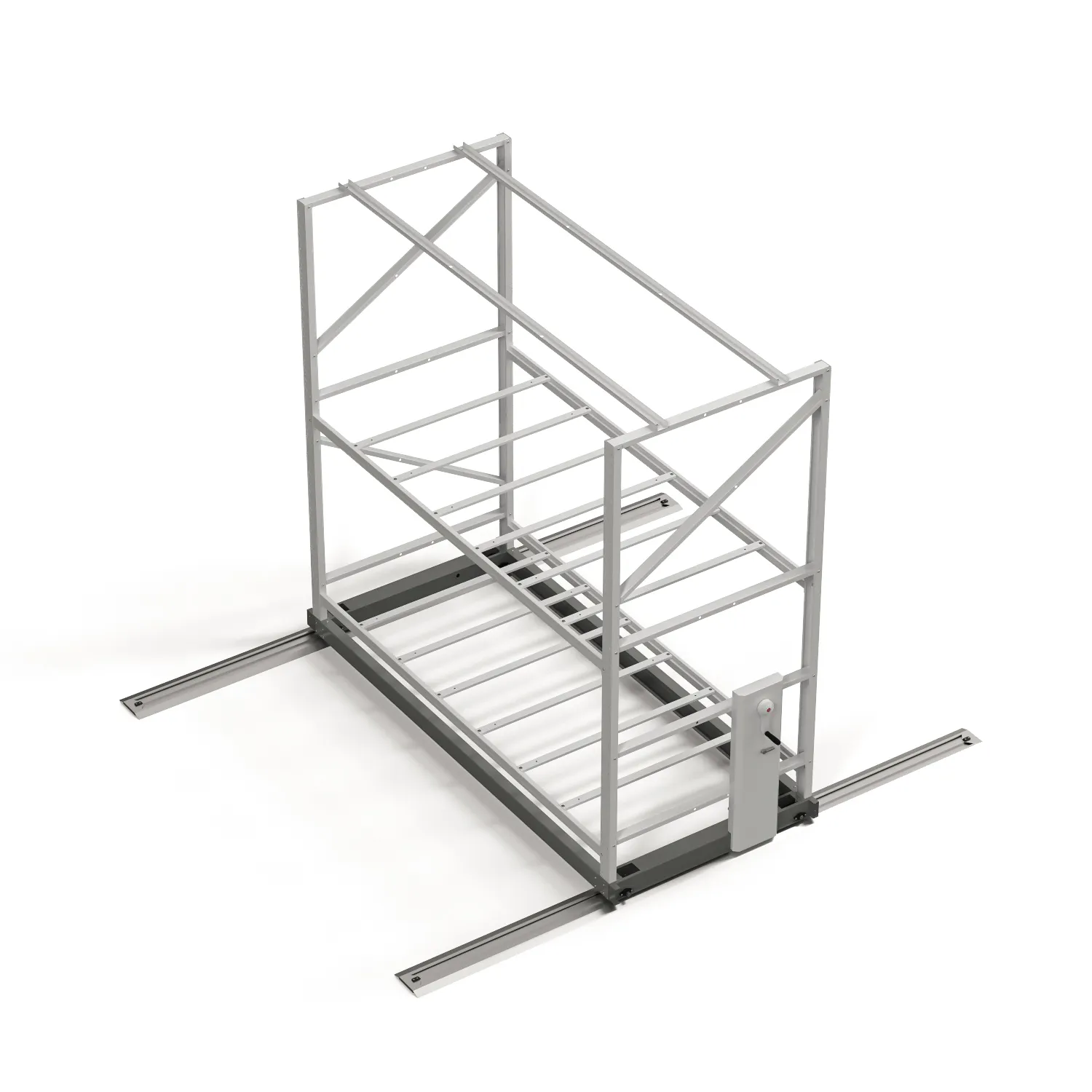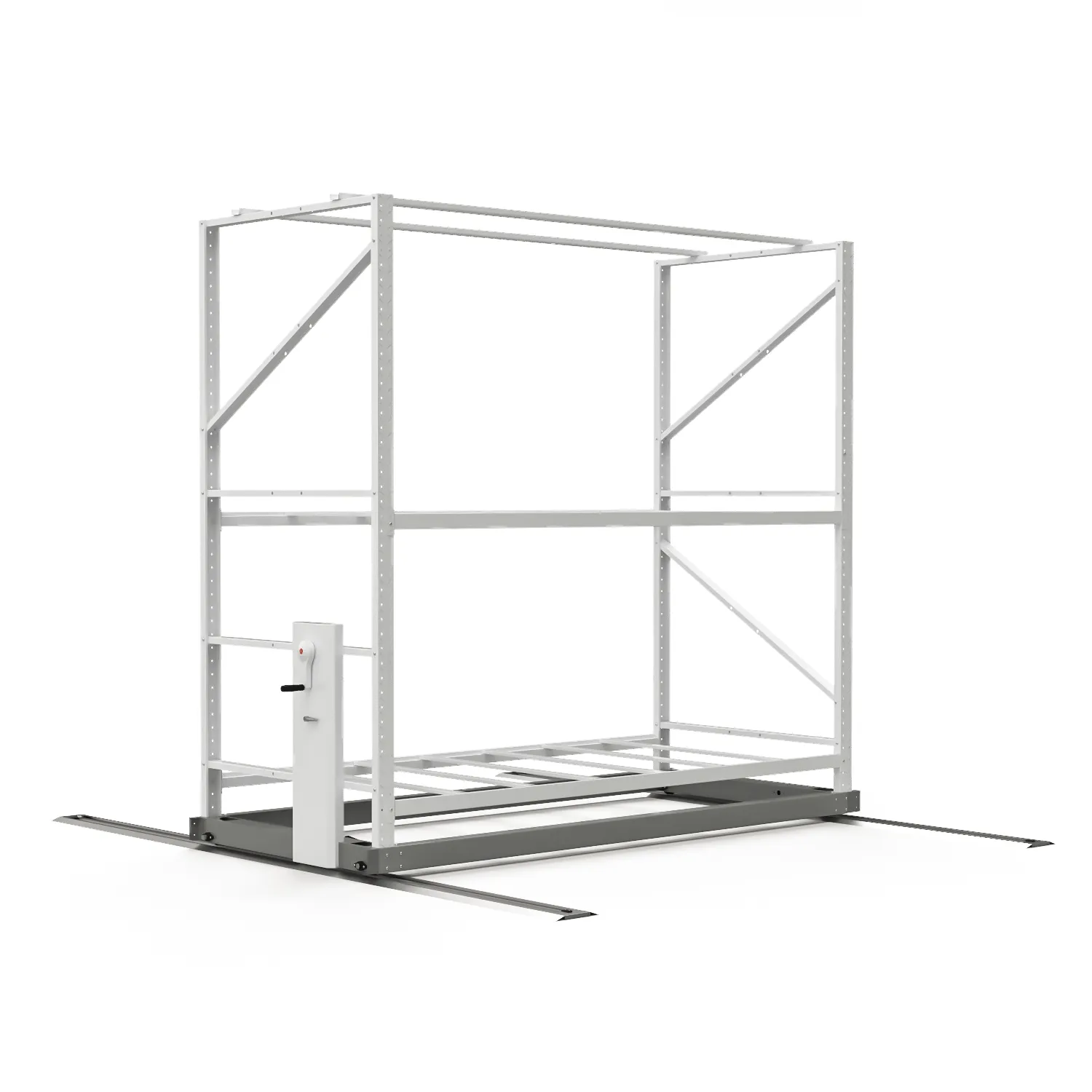Vertical grow rack systems are composed of several key components that work together to create an efficient and effective environment for growing plants vertically. The specific components can vary depending on the type of system, but here are the common elements found in most vertical grow rack setups:

Material: Typically made from steel or aluminum for durability and strength.
Function: Provides the framework for the system, holding the plants, trays, and other components in place. It can be static, mobile, or automated, depending on the system.
Material: Shelves or trays are often made from plastic, metal, or other water-resistant materials.
Function: Holds the plants or growing medium. In hydroponic systems, these trays also serve as the containers for nutrient solutions. They are designed to be easily removable or adjustable depending on the plant's growth stage.
Types: LED grow lights, fluorescent lights, or high-intensity discharge (HID) lights.
Function: Provides the necessary light spectrum for photosynthesis. The lights are often adjustable and can be positioned to optimize light exposure for all plants on the rack. LED lights are common due to their efficiency and low heat output.
Types: Drip irrigation, Nutrient Film Technique (NFT), Ebb and Flow, or wicking systems.
Function: Delivers water and nutrients to the plants. In hydroponic systems, this is critical for ensuring that plants receive the right amount of nutrients. Some systems use automated timers and sensors to control water flow.

Components: Drip trays, drainage pipes, or gutters.
Function: Collects excess water or nutrient solution and channels it away from the plants to prevent waterlogging and root rot. In recirculating systems, the drainage can be reused.
...
For more detailed information about the components of the vertical grow rack systems, please click here: https://www.etegreen.com/en/a/news/vertical-grow-rack-systems-components.html